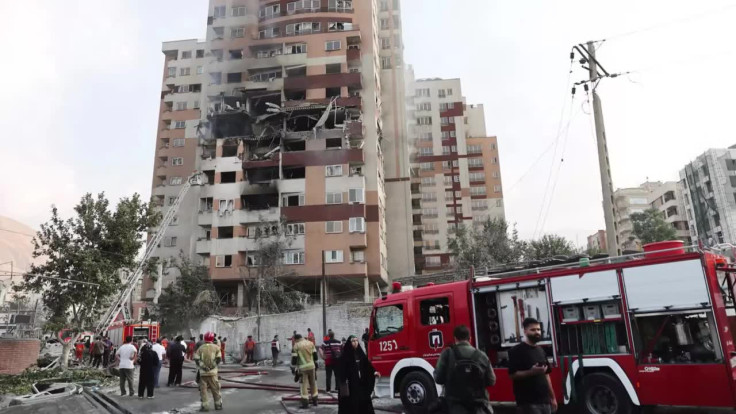
After Israel's massive aerial assault on Iran on Friday, two of Tehran's most capable allies in the "Axis of Resistance," Hezbollah and the Houthis, have stated that they will not be accompanying Iran in retaliatory strikes. A Hezbollah spokesperson said on Friday that they will honor the ceasefire agreement they negotiated with Israel in November 2024.
An analysis by Reuters notes that Hezbollah's command structure is incapacitated, a result of cumulative Israeli airstrikes targeting leadership and weapons caches over recent years. Covert Israeli operations across Syria have also disrupted supply routes and struck Iranian-linked commanders, further suppressing the group's readiness.
Hezbollah has been in direct conflict with Israel since October 7, 2023, when the ruling Palestinian party, Hamas, led an attack in the Gaza Strip and southern Israel in response to the Israeli occupation of the area, triggering a controversial military response that has been labeled as "genocidal." The day after, Hezbollah launched rockets at IDF installations in the Shebaa Farms, a strip of land on the Lebanese-Syrian border currently occupied by Israel.
Along with bombing the Gaza Strip, Israel also began launching drone strikes and missile launches at Lebanon, displacing over 1 million Lebanese. The bombings have killed most of Hezbollah's senior leadership. In September 2024, Israel intensified their response with the coordinated explosions of pagers belonging to leading Hezbollah figures. A month later, Israel began an invasion of southern Lebanon, and a ceasefire agreement was negotiated that November.
Meanwhile, Yemen's Houthis have also refrained from carrying out fresh attacks on Israel. Their pushback comes despite previous missile and drone strikes aimed at Israeli targets. In May, they successfully hit near Ben Gurion Airport with a ballistic missile, though without causing significant damage. Israel responded with a naval strike on Hodeidah port.
The "Axis of Resistance" is an informal coalition of Iran-supported political organizations in the Middle East. With its beginnings being traced back to the Iranian Revolution in 1979, the "Axis" also includes the Islamic Resistance in Iraq and, sometimes, Hamas. Syria was the only other state member besides Iran until the overthrow of Syrian leader Bashar al-Assad last year.
Reuters has speculated that the fall of Assad's government, as well as the 2020 assassination of Major-General Qassem Soleimani of Iran by the United States, widely considered the leader of the "Axis," the network has faced major disruptions. Israel, a military superpower in the region due to military support from the Western world, especially the United States, has long been at conflict with its neighbors over land disputes as well as over the treatment of Palestinians.
© 2025 Latin Times. All rights reserved. Do not reproduce without permission.




